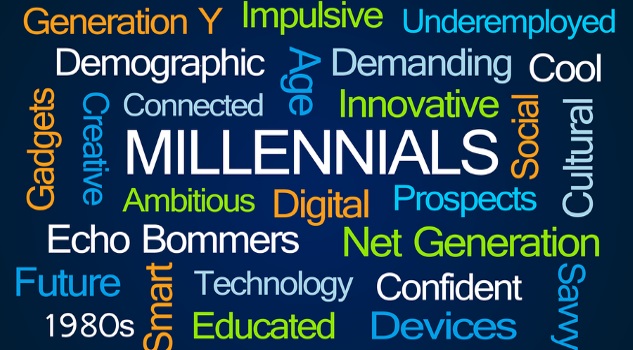While millennials aren’t a generation who are, by default, programmed for the traditional notions of workplace hierarchy (i.e., the corporate ladder) there still exists a pressure, so to speak, of adhering to this social construct of ‘progression’. (And I say ‘progression’ because this of itself, is a term that means different things).
While workplaces have shifted over the years when it comes to offering pathways for progression and satisfying the needs for growth and development – particularly for the millennial generation who require it – there remains a challenge: the race to the top. And while there may be a perception of a growing trend of millennials wanting to ‘climb the ladder’, it’s this very term that is often met with different views and expectations. First, from millennials in pursuit of the ‘climb’, and second, those in the workplace – management in control of, or colleagues observing, the ‘pursuit’. The result of which can end up in disconnect if perspective and intentions are not understood.
For some workplaces, progression – including growth and development – is tied directly with the upward chain of the ladder and demonstrated through promotion. Millennials can oftentimes find it a challenge working in workplaces that are stringent on structures and hierarchy as the only way for forward progression. However, they are aware of the catch-22 this presents. On the one hand, the ‘conflict’ of having to follow the same path of development, via a promotion-only route; on the other, giving them what they desire – opportunity, recognition, and growth.
For millennials in these workplaces, the propensity for the race to the top is most likely to be seen. And with that, the high level of expectation they too, place on themselves to climb that ladder – to do it all – as soon as they enter the workplace. Not least because of a need to ‘prove’ themselves in what can sometimes be felt as a ‘dog-eat-dog’ world, but because of the realisation that for this workplace, the only way to get what they want, is up.
Key for those managing millennials is expectation management. Because the reality is, while the ‘quest up’ is on their current agenda, it may not always be there – including them – especially if they are offered a faster route. What’s important for managers to understand is their intent, and why: asking the question on what progression means to them. Is it because they are genuinely interested in rising into senior management in this specific workplace, and investing themselves back, or is it because of an unfilled need (i.e., their worth) they think will be filled once they get there? And if so, is there an alternative pathway to fulfill what they want?
This isn’t to discourage progression (or ‘the climb’), but instead to manage the expectations of all those involved because the consequences of those situations are both very different. And what workplaces would benefit from, are outcomes that support all those involved – which includes taking the pressure of both millennials and managers for this ‘race to the top’.









![I’m sick of entitled millennials who [fill in the blank]](https://insidesmallbusiness.com.au/wp-content/uploads/2021/04/How-to-keep-your-millennial-employees-engaged-200x150.jpg)



